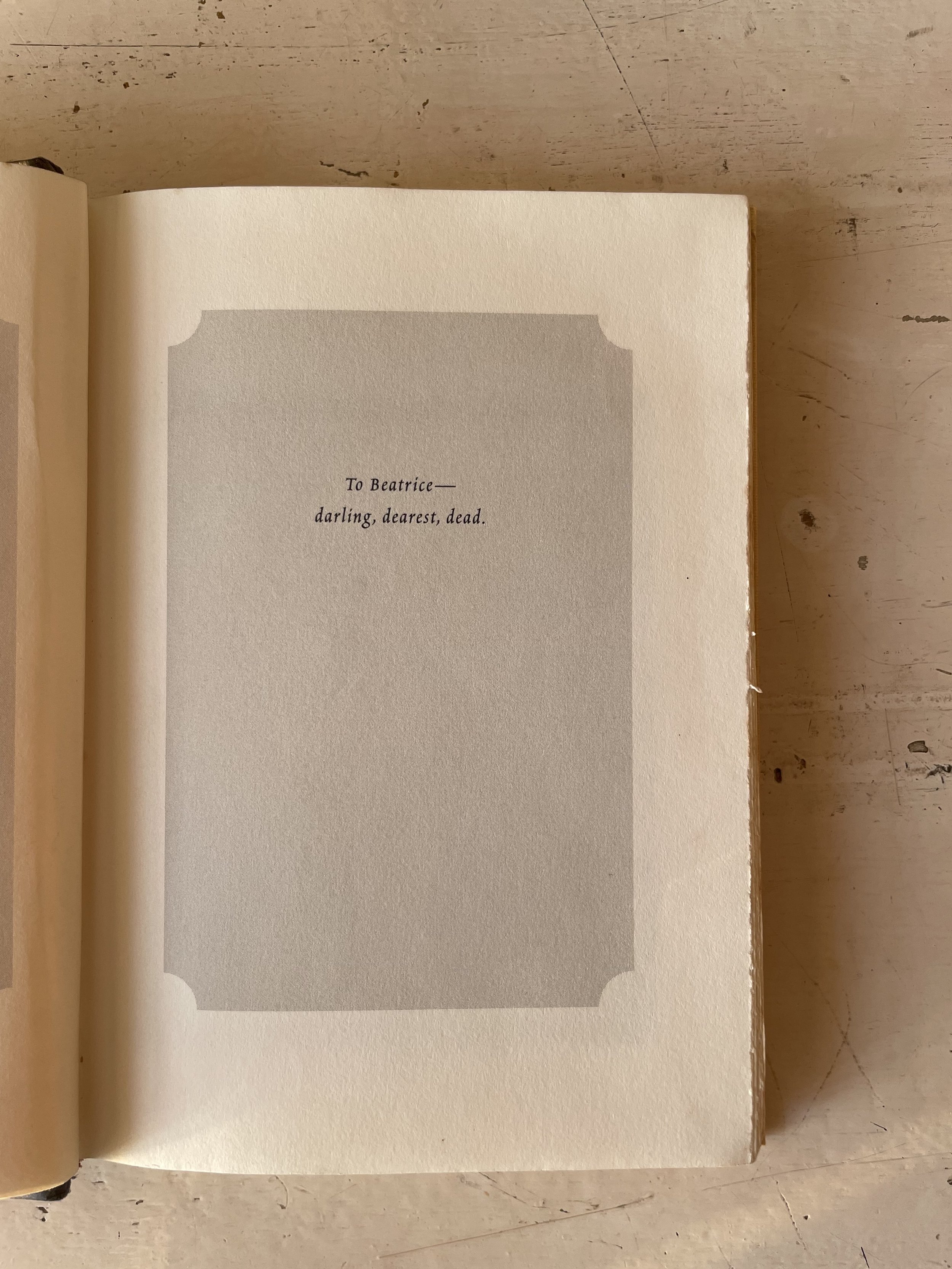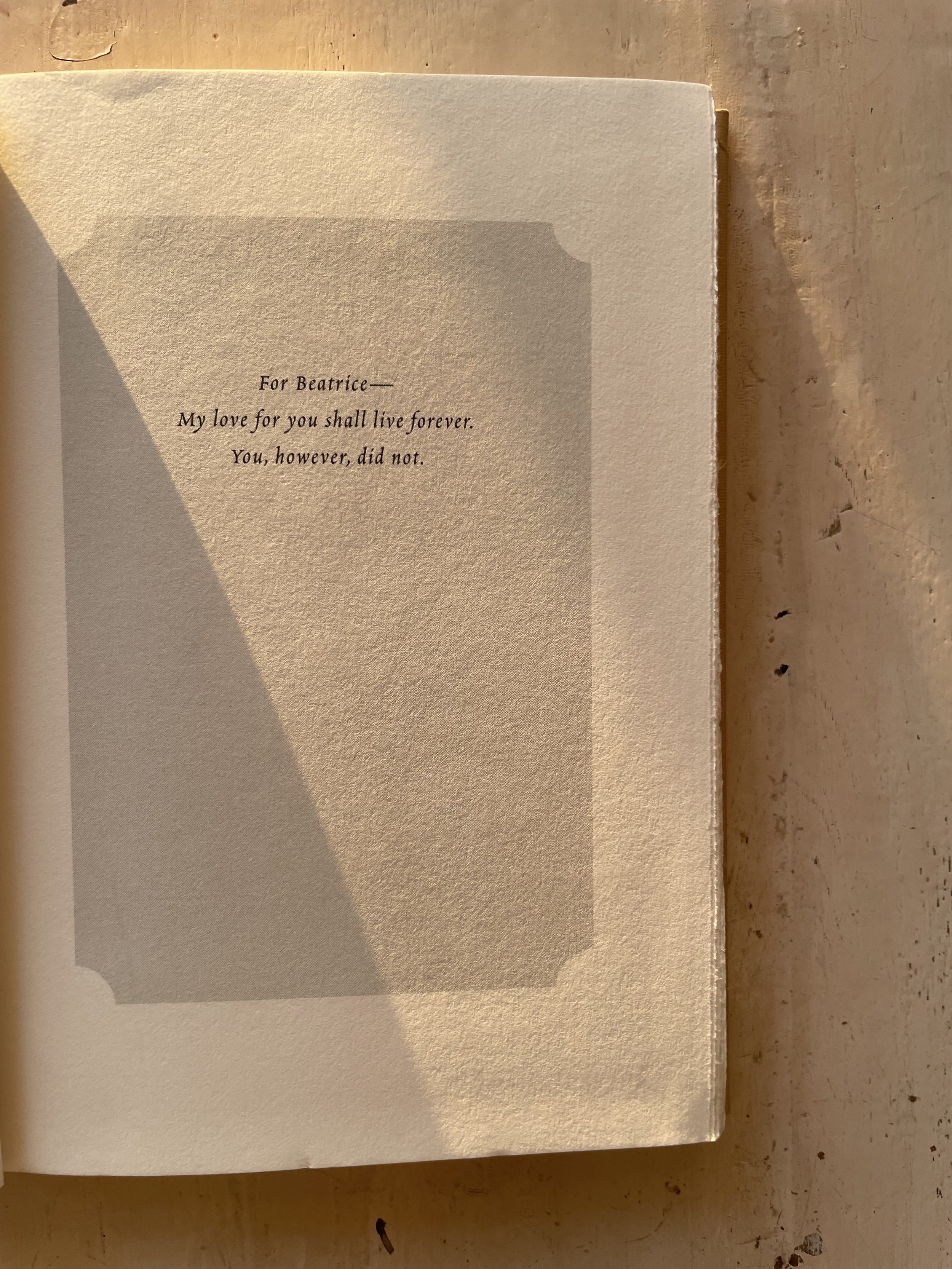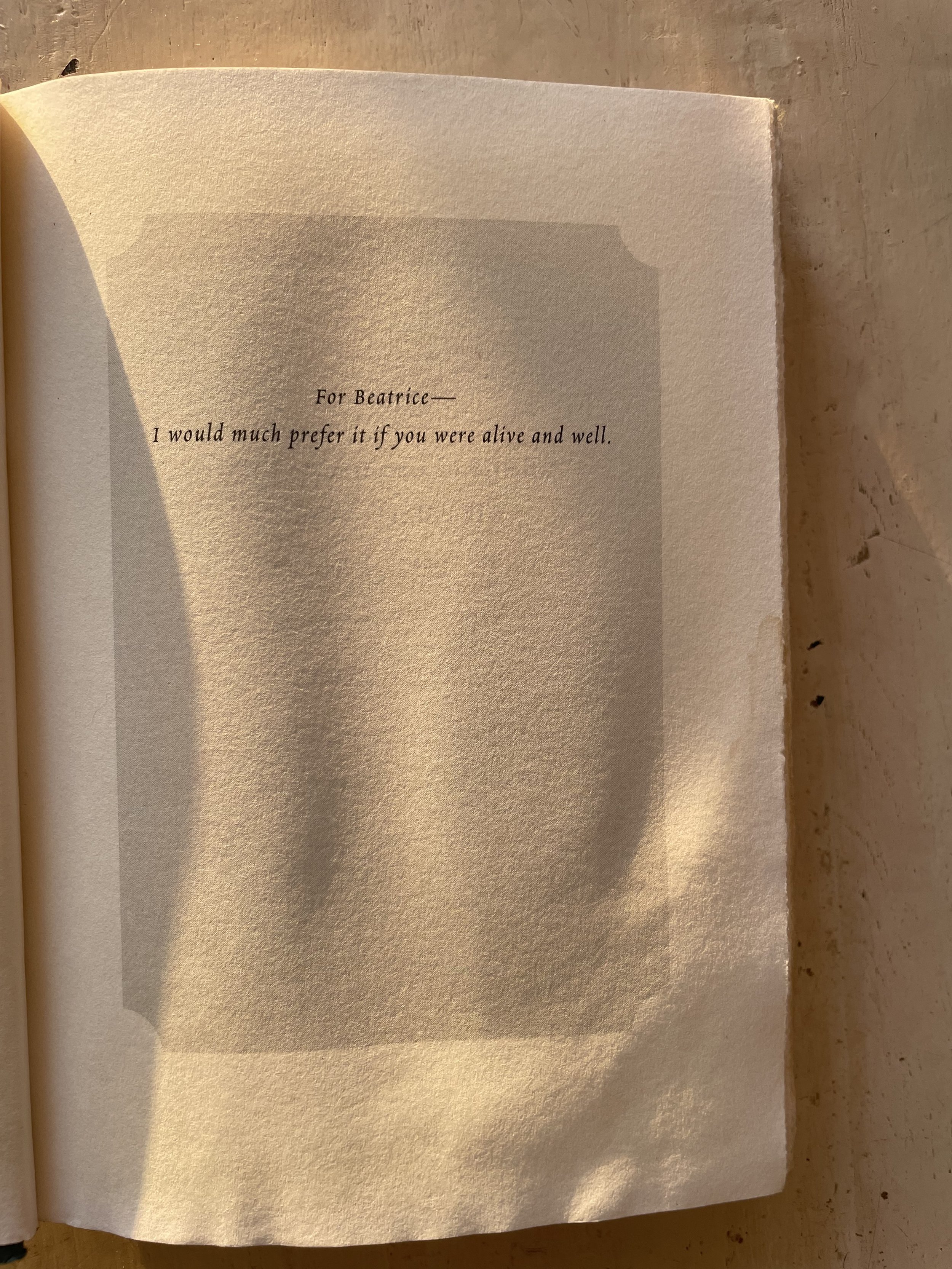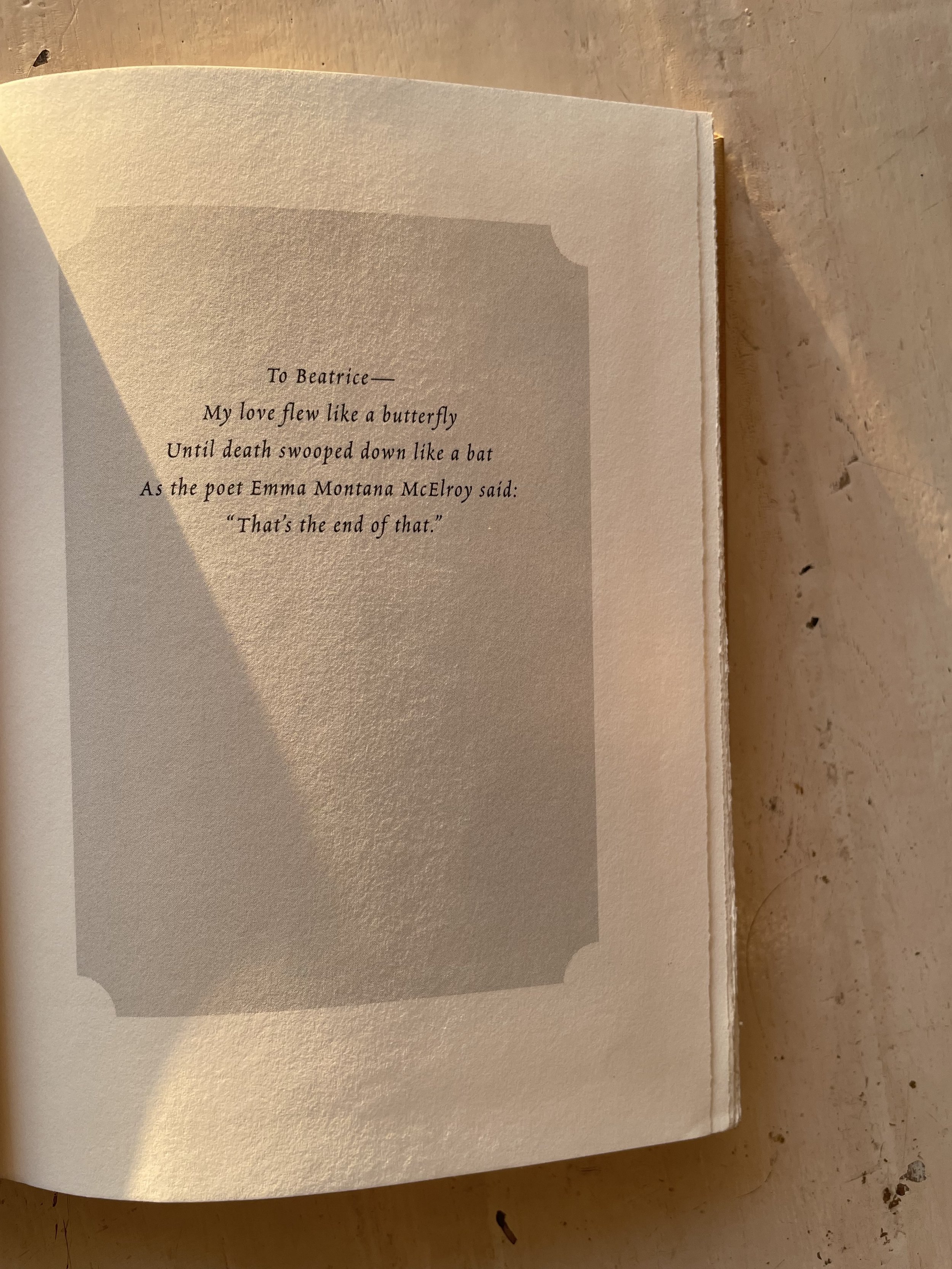This book is dedicated to…
Why is combing through the acknowledgements pages of books — which range from profound to profane — fascinating to an inquisitive few?
Illustration by Tasneem Amiruddin
On a Saturday morning in March 2017, American fiction writer and literary professor Bruce Holsinger put out a handful of tweets accompanied by a rather sardonic hashtag —#ThanksForTyping — whilst sitting at a neighbourhood Starbucks in Charlottesville, waiting for his son to finish soccer. Holsinger was having a conversation with a few colleagues on Twitter about men of letters failing to show gratitude towards the women who lent them invaluable assistance. These women not only typed but also scrupulously researched, transcribed and retyped (sometimes, rewrote by hand) their manuscripts for them, while tasked with the grind of running a household. He went on to gather extracts from the acknowledgements pages of colossal tomes where a lot of the women who did the heavy-lifting were hidden behind a veil of anonymity, being referred to as “my wife” or, in some cases, not even afforded the civility of a mention. These omissions, in turn, sparked a series of tweets, primarily by those in academia incensed about “uncredited female labour” or “unacknowledged collaborators,” attempting to rehabilitate countless women’s literary contributions — many of them writers in their own right — including those by Zelda Fitzgerald, Véra Nabokov and Sonya Tolstoy.
While these blatant eliminations from the endpapers of books point towards a universal phenomenon of gendered labour, writing acknowledgements is fraught business. The codas range from being entirely absent to effusively unreal, traversing somewhere between lush and pared down, mawkish and cynical, rip-roaringly funny and resolutely ordinary. Depending on whether they thank the succulents on their desk; their indifferent cats; adoptive cities and homes that sew a geography of where the book was written; baristas and bartenders; friends who babysat tantrum-throwing kids; or a library assistant who alerted them to the whereabouts of John Cheever’s Bloody Papers, one could probably plot the authors on one of nine on the Enneagram Scale.
Being one of those people who makes it a point to flick to the back of the book to scan the acknowledgements even before beginning to read the book, I have occasionally wondered as to what makes us curious about these afterwords, despite the knowledge that we barely share any personal connections with the people listed in these pages. Why are they oftentimes so revelatory, when all the author could have done was perhaps send thank-you notes to those they wished to express appreciation? Do readers grasp the book better if they understand who it comes from and whom it is for? Does a demonstration of largesse come across as cliquish or an exaggerated politeness? Do acknowledgements dispel the so-called mystery surrounding book publishing? Do they read as hagiographies born of an all-too-nostalgic gaze into the distant past? Or is it simply a no-brainer — an unwitting, de rigueur gesture of honest gratefulness?
*
The widespread image of a writer as a detached, solitary figure, engaged in a lonely slog from daylight to dark is somewhat misconstrued. Capacious acknowledgements reflect that it possibly takes a village to complete a book. In his debut novel On Earth We’re Briefly Gorgeous (2019), Ocean Vuong thanks half a dozen early readers of the manuscript for “gracious and lantern-like comments and insight,” with the following acknowledgement for an American poet particularly standing out:
“To Yusuf Komunyakka, thank you for showing me how to break the line and see the world more clearly at its brutal and inky joints. For tolerating my fanboying when, by luck, I sat down beside you one rainy night in a West Village theatre, autumn 2008, and kept yapping about everything and nothing at all. I don’t remember the movie but I’ll never forget your laugh. Thank you for being my teacher.”
We know absolutely nothing about the equation Vuong and Komunyakka share and yet, it is quite impossible to not find this articulation of affection delightfully humane. The acknowledgements in Vuong’s novel aren’t just endearing but edifying too, obliviously leaving a trail of breadcrumbs, directing the reader on what to pick up next. He goes on to record names of writers and musicians whom he “leaned on, repeatedly” while writing the novel, including James Baldwin, Roland Barthes, Joan Didion, Perfume Genius, Whitney Houston, Etta James, MGMT, Frank Ocean, Jenny Offill, Frank O’Hara, Nina Simone, Sufjan Stevens and several others.
Seen above are the acknowledgements pages in ‘A Series of Unfortunate Events’ by Lemony Snicket titled ‘The Dismal Dedications.’
While partners, parents, publishers, translators and agents are invariably thanked, and advice and aphorisms gleaned from mentors is made note of, it is the emphasis on the minutiae — the clandestine messages, private jokes and sweet nothings, almost like snatches of an overheard conversation — that makes for fascinating parsing.
For Mahesh Rao, author of the novels The Smoke is Rising (2014) and Polite Society (2018), putting together the acknowledgments is generally a pleasurable task. “For one thing, there is the relief of having almost reached the end of the enormous task of writing the book. There is also a great sense of fulfilment in being able to express your gratitude for all the kindness and support you might have received during the course of the writing, however insignificant the contribution might seem to the person who told you an anecdote, invited you to stay for a weekend, or said it would be worth it all in the end,” he tells me.
Allusions to all the cheerleading are also made through the use of diverse parlance: keen eyes, tireless faith, infinite patience, deft edits, careful readings, incisive comments, stray remarks, roaring laughs, playful chides and baked goods. Anecdotal evidence of gratitude, when marked by surprise, happenstance or circumstance, is especially stark when the writer sneaks in many turns of phrase to just say thanks. At times, there is guilt and apologies concealed within gratitude. While easy camaraderie is a welcome deflection from formulaic lists, where does the writer draw a line between being all-too-divulging and retaining a modicum of privacy?
*
“The proliferation of acknowledgments [in novels] can be attributed, I think, to two related social or cultural rather than specifically literary phenomena,” Keshava Guha, author of Accidental Magic (2019) tells me. “The first is the marketing of authors themselves as brands, rather than books. First came author photos, then book tours, signings and literary festivals, followed by Twitter accounts and so forth. A generation or two ago readers were interested in books, not so much in the people that wrote them. The acknowledgments are a way of bringing the author — the real, 'relatable' person — into the book itself. Acknowledgements can even be a way of (not-so-humble) bragging: look at the fellowships I won, the residences I attended. And two, social media obviously has [had] a role to play here — the past decade or so have witnessed the complete collapse of the public/private distinction,” he elaborates.
Taran Khan, author of Shadow City: A Woman Walks Kabul (2019), has a different take. “In the days before author interviews and lit fests, this [the acknowledgements section] was a rare window into the world of writing and publishing. I loved that: to catch sight of a world where writing had value, to see the writer be in his or her element. It's almost an in-between space in the text, where writers can step out of the wings and take a bow, or look the reader in the eye and talk, so to speak,” she tells me.
The outward simplicity of a thank you can quickly devolve into an act the writer wrestles with while composing this section, feeling hamstrung between public display and private gratitude.
Anuradha Roy, in The Earthspinner (2021), makes mention of her dogs Piku, Soda, Barauni and Biscoot, her “determined research assistants” in the acknowledgements. In Insomniac City (2017), Bill Hayes offers heartfelt thanks to his first agent, the late Wendy Weil, who “looked me in the eye one day years ago and told me I really should think about doing a New York book.”
While such generosity of spirit is heart-warming, it can easily border on treacly sentiment. Take, for instance, the concluding shoutout in Anne Lamott’s wryly styled writing guide Bird by Bird (1994): “Sam said to me the other day, “I love you like 20 tyrannosauruses on 20 mountaintops,” and this is the exact way in which I love him.”
And if one is on the lookout for pronouncements that are amusingly immoderate, consider Elizabeth Longford’s The Pebbled Shore (1986), where the historian and Countess of Longford thanks one son-in-law for a pleasurable holiday, claiming, “It was an exhilarating experience to listen to the Pinters’ and Billingtons’ play-reading sessions, interlaced with passionate talk about Amnesty and Star Wars under the stars,” and another son-in-law for “introducing me to the perfect diet during a critical time in the writing of this book”. This isn’t all; she goes on to touch upon the practice of “manuscript bartering” within her family, an exercise that entailed swapping unfinished drafts in a bid to receive criticism, constructive or otherwise.
Bearing semblance to Longford’s tone is Sheryl Sandberg in Lean On, a slim, 172-page book, where the acknowledgements span seven and a half pages, proclaiming thankfulness to over 140 people, including Oprah Winfrey. Now this is, more often than not, a move in making sure the world knows the people you know. “Gratitude does not have to be a public performance. Making it public does not make it any more genuine, of course. Authors are as cynical as the next person, if not more so — acknowledgments can be used to placate potential reviewers,” says Guha.
*
If Longford and Sandberg are excessively rhapsodic, on the other end of the gratitude spectrum is someone like novelist, art critic and screenwriter John Berger, who, in his Booker Prize-winning novel G. (1982), chooses a succinct, no-holds-barred approach. After listing some quotations consulted for the text and thanking the Arts Council of Great Britain for their assistance, he writes, “Other acknowledgements to friends are too deep and intensive to tabulate,” almost indicative of a why-must-the-reader-know-everything tenor. In a similar vein, Sri Lankan novelist Anuk Arudpragasam, author of The Story of a Brief Marriage (2016) and A Passage North (2021), austerely notes down the initials of “a small number of individuals” from whom “a great amount of help” was gleaned.
A thorny terrain that laces the composition of acknowledgements is a degree of resentment towards former embittered partners, friends who’ve strayed or love affairs that fizzled out — but whose names do feature in those pages. This is akin to feeling regret over a tattoo, and can probably be undone if and when a subsequent edition of the book is published.
“I am also surprised that the ‘anti-acknowledgments’ page has not become a fixture in books — a list of all the people in spite of whom the book went on to be written and published, whether unsupportive partners, discouraging teachers or mortal enemies,” says Rao.
When E E Cummings self-published No Thanks (1935), he made sure to, well, thank the 14 publishing houses that had turned down the collection of poetry. Brendan Pietsch, a professor at a university in Kazakhstan, in his book Dispensational Modernism (2015) adopts a passive-aggressive stance in the acknowledgements pages, holding responsible those who egged him on:
“I blame all of you. Writing this book has been an exercise in sustained suffering. The casual reader may, perhaps, exempt herself from excessive guilt, but for those of you who have played the larger role in prolonging my agonies with your encouragement and support, well…you know who you are, and you owe me.”
Contrary to the acknowledgements, a book’s dedication — appearing right after the title page — is crisp, private, concentrated, and more likely to be read. It is meant to be extremely special, ranging from speculative (“For H.”), to relaying an uplifting effect (“To all the obstinate, headstrong girls forging new paths”), or suffused with an all-embracing spirit (“If you’ve ever sung along to a song on the radio, this one’s for you”), though when presented without context, may elude appreciation. If the acknowledgements is where the author swells with emotional highs, indulging in a group hug with their coterie of friends and advisers or raising a toast to them, dedications are the quiet, unassuming — yet of inestimable value — insignia where the author doesn’t feel the need for sumptuous display of affection.
*
While one can easily roll their eyes at all the namedropping that seems requisite rather than earnest, the tonal variation between the two is rather discernible. “The acknowledgements for my own book ran into several pages, and could have been longer. I admire people who are more concise, but I don’t know that I can be one of them. Having said that, overly flowery language or a sense of the author being coy in this section does not work for me,” says Khan.
At times, the cliché-laden love dripping off the acknowledgements pages may read like bad poetry or, as Guha tells me, “The quality of the prose ranges from mediocre to scandalously bad; Hallmark-card writers would wince bad”. Although it would be brusque and crotchety to not give credit where it is due, authors can then perhaps adopt William Faulkner’s “kill all your darlings” approach, treading the acknowledgements section as an exercise in detachment. Every sounding board and punching bag on the author’s friend list need not be included, and the imprimatur of experts should be left to back-of-the-book blurbs. Of course, editors deserve a mention; their work is as arduous as that of the author’s, and so do those engaged in creative partnership with the author, lest #ThanksForTyping raises a furore once again. If nothing else, the acknowledgements should reflect a simple grace that brings the reader quietly into the author’s world, if only for a brief moment.
Khorshed Deboo is an independent writer and text editor based out of Bombay with an interest in art and literature. Her writing has appeared in publications such as Himal Southasian, Scroll and The Caravan, among others. She is @khorshed_d on Instagram.





